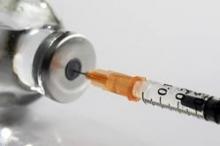DESTIN, FLA. – Various environmental factors are known to play a role in immune-mediated disease, and the extent to which certain adjuvants contribute to both defined and nondefined immune-mediated diseases warrants a new classification for such diseases, according to Dr. Yehuda Shoenfeld.
He proposes that these adjuvant-induced conditions be classified under a common syndrome entitled Autoimmune Syndrome Induced by Adjuvants (ASIA).
In a 2011 article in the Journal of Autoimmunity, he and coauthor, Dr. Nancy Agmon-Levin of B’Sheba Medical Center, Tel-Hashomer, Israel, reviewed the data demonstrating links between adjuvants and autoimmune disease (J. Autoimmun. 2011;36:4-8).
"ASIA is not necessarily a full-blown, fully characterized autoimmune disease that we are aware of like systemic lupus erythematosus, systemic sclerosis, or rheumatoid arthritis. However, it might be that this syndrome will evolve over the years into a full-blown autoimmune disease," Dr. Shoenfeld of Tel Aviv University, Israel, said at the annual Congress of Clinical Rheumatology.
ASIA is a "special complex of clinical manifestations," he said, noting that chronic fatigue is a particularly important manifestation, as are numerous nonspecific symptoms.
Incubation time after exposure to the offending adjuvant may range from 3 weeks to years and may be associated with chronic stimulation of the immune system by the adjuvants. Multiple vaccines or silicone leakage or rupture – from breast implants, for example – represent such chronic exposure.
As with all autoimmune diseases, there is likely a genetic component that factors into the development of ASIA, he said.
"One of the most important adjuvants is aluminum ... and there is no question that there is involvement of the central nervous system," he said, noting that many affected patients thus experience memory loss and cognitive impairment.
Adjuvants were formerly thought to pose little or no independent threat, but animal models, and some human studies, have suggested otherwise, he said.
In his article and during his presentation, Dr. Shoenfeld reviewed the data on the role of infections, silicone, and aluminum salts commonly found in vaccines as they relate to the development of autoimmunity.
Activation of the autoimmune mechanisms by infectious agents is common, he explained in the article.
"Yet the appearance of an autoimmune disease is not as widespread and apparently not always agent specific. The adjuvant effect of microbial particles, namely the nonantigenic activation of the innate and regulatory immunity as well as the expression of various regulatory cytokines, may determine if an autoimmune response remains limited and harmless or evolves into a full blown disease," he continued.
As for silicone, he discussed multiple studies demonstrating various links with autoimmune disease. In one study, 100 women with silicone breast implants all reported symptoms after about 6 years, including weakness, fatigability, myalgia, morning stiffness, arthralgia, memory loss, sensory loss, headache, and dry mouth.
Abnormal levels of serum immunoglobulin or complement were found in 57% of patients and antibodies were found in 78%.
Other studies have suggested a link between silicone breast implants and lymphoma, polyarthritis, and connective tissue disease. Furthermore, numerous reports have shown that explantation is associated with symptom improvement, he noted.
As for vaccines, Dr. Shoenfeld stressed that he is not "antivaccine," and in his article, he described vaccines as "one of the greatest achievements of modern medicine," but he is concerned about the links between certain vaccines and ASIA.
He recently published a report on three cases of primary ovarian failure in association with the quadrivalent human papillomavirus vaccine (Am. J. Reprod. Immunol. 2013 [doi:10.1111/aji.12151]), and he noted that other studies have suggested an association between the vaccine and SLE, various hypersensitivity reactions, and demyelination syndromes, for example.
"My aim is to draw your attention to the association," he explained.
Reports of "an avalanche" of cases of narcolepsy in Finland following vaccination with the adjuvanted AH1N1 vaccine have also raised concerns – and raised the possibility that narcolepsy is an autoimmune disease, he said, noting that multiple studies have explored and provided support for this possibility.
Dr. Shoenfeld proposes that a diagnosis of ASIA should be based on the presence of either two major criteria or one major and two minor criteria.
Major criteria as defined in his article are:
• Exposure to an external stimulus prior to clinical manifestations.
• The appearance of typical clinical manifestations, including myalgia, myositis, or muscle weakness; arthralgia and/or arthritis; chronic fatigue, unrefreshing sleep or sleep disturbance; neurologic manifestations, cognitive impairment/memory loss; pyrexia and dry mouth.


